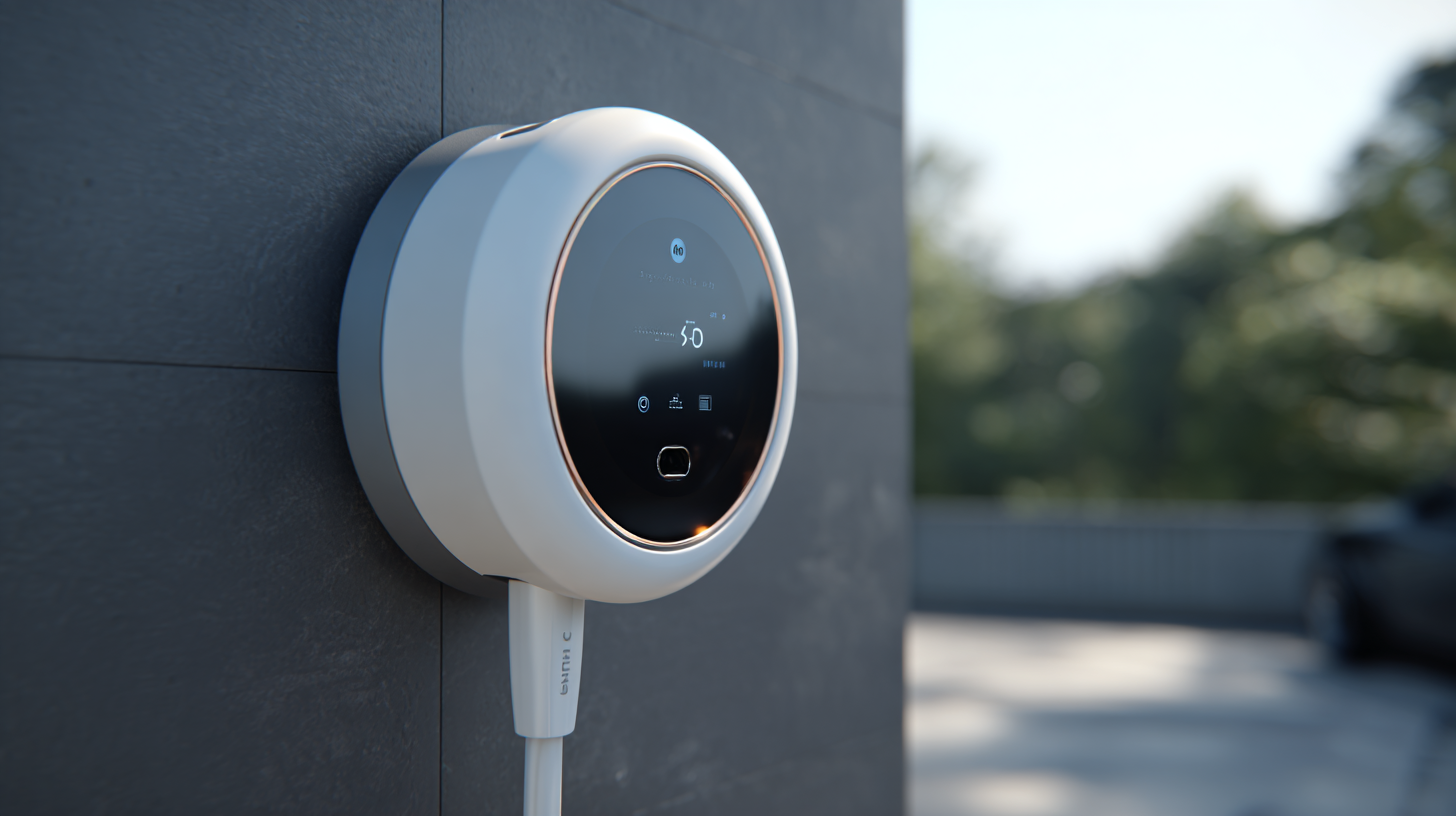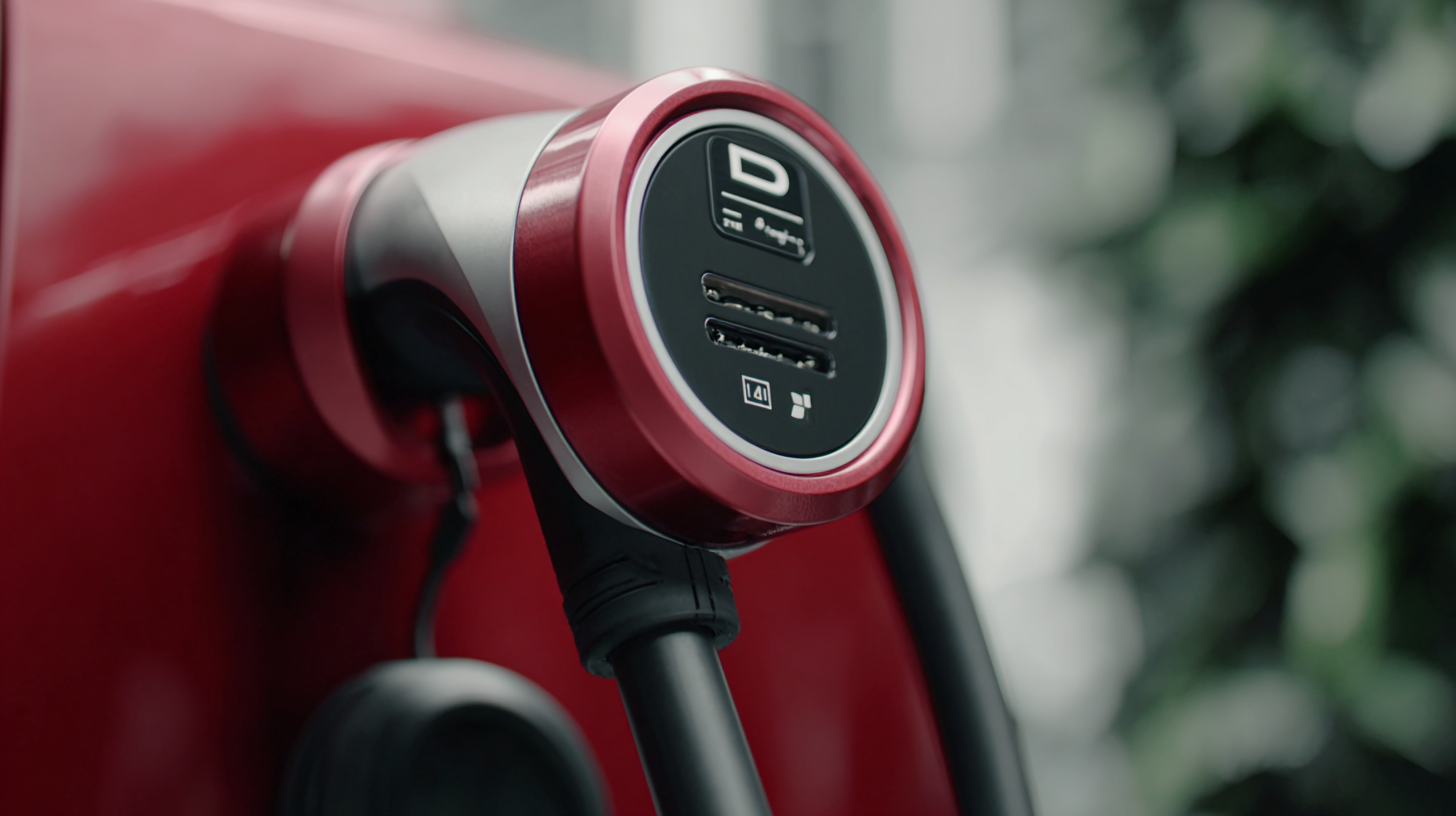As the electric vehicle (EV) market continues to surge, with global sales expected to exceed 26 million units by 2030 according to a report by Bloomberg New Energy Finance, the demand for efficient charging solutions becomes increasingly critical. Among these solutions, the "Home Car Charger" stands out as a vital component in the transition to sustainable transportation. A study by the International Energy Agency (IEA) indicates that by 2030, up to 70% of EV charging will take place at home, highlighting the necessity for manufacturers to develop cost-effective and reliable home charging options. This growing trend not only supports the convenience of EV ownership but also aligns with governments worldwide aiming for net-zero emissions targets. In this landscape, factories that are considered leading exporters globally are well-positioned to innovate and deliver advanced charging technologies that meet these evolving consumer needs.

As the adoption of electric vehicles (EVs) continues to surge, the innovation in charging infrastructure will play a pivotal role in shaping the future of sustainable transportation. One of the most promising advancements is the development of ultra-fast charging stations that can replenish an EV's battery in just minutes, significantly reducing downtime for users. These stations utilize cutting-edge technologies such as high-capacity battery storage and optimized energy management systems, allowing them to offer rapid charging even in high-demand scenarios.
Another exciting trend is the integration of renewable energy sources into charging solutions. By harnessing solar and wind energy, new charging stations can operate sustainably and even provide surplus energy back to the grid. Furthermore, advancements like wireless charging and vehicle-to-grid (V2G) technology are set to revolutionize the way we think about energy transfer. With V2G systems, EVs can not only draw power when needed but also return it to the grid during peak demand times, thereby enhancing energy efficiency and stability. These innovations will help create a robust charging ecosystem that not only meets the growing demands of electric vehicle users but also promotes a cleaner and more sustainable energy future.
| Charging Solution | Charging Speed (kW) | Estimated Time to Full Charge (hrs) | Type of Charger | Location Suitability |
|---|---|---|---|---|
| Level 1 Charger | 1.4 - 2.4 | 10 - 20+ | Residential | Home Garages |
| Level 2 Charger | 3.7 - 22 | 4 - 8 | Public/Commercial | Parking Lots, Businesses |
| DC Fast Charger | 50 - 350 | 0.5 - 2 | Public | Highways, Service Stations |
| Wireless Charging | Up to 10 | Varies | Innovative | Residential, Public Parking |
| Battery Swap Stations | N/A | <30 min | Specialized | Strategic Locations |
As the electric vehicle (EV) market accelerates, the demand for efficient charging solutions becomes increasingly pressing.
Chinese factories have emerged as pivotal players in the global EV charging solutions landscape. With their advanced manufacturing capabilities and competitive pricing, these factories are positioned to meet the rising needs for various charging infrastructures, including fast chargers, home charging stations, and networked charging units.
Chinese manufacturers have made significant investments in technology and innovation, allowing them to produce high-quality, efficient charging systems that can be deployed across diverse environments. This commitment to quality ensures that charging solutions are not only effective but also align with the global push for sustainability.
Moreover, China's expansive supply chain and expertise in electronics manufacturing enable swift scaling of production to keep pace with the rapidly growing EV market, making them indispensable partners for automakers and energy providers around the world.
As EV adoption continues to grow, the role of Chinese factories in developing and supplying efficient charging solutions will be crucial for supporting this transformative shift in transportation.
Sustainability is becoming a central focus in the
manufacturing of electric vehicle (EV) charging solutions, as companies strive to
reduce their environmental footprint. According to a recent report by the
International Energy Agency, the adoption of electric vehicles
is expected to reach 145 million by 2030, underscoring the urgent need for
eco-friendly charging infrastructure. Manufacturers are increasingly integrating
sustainable materials and
renewable energy sources into their products, not
only to comply with regulatory frameworks but also to meet the growing consumer
demand for green technologies.
Innovations such as solar-powered charging stations are gaining traction. The
Solar Electric Power Association (SEPA) reported that solar
installations for EV charging have grown by 20% annually, indicating a shift
toward harnessing renewable resources in this
sector. Moreover, incorporating recycled materials in the
manufacturing process of charger components can significantly lower the carbon footprint.
Studies show that utilizing recycled plastics and metals can reduce greenhouse gas
emissions by up to 70%, highlighting the critical role of sustainability in
the evolution of EV charging solutions. As the industry moves forward, these eco-friendly
practices will not only enhance the efficiency of charging solutions but also contribute to a
more sustainable future.
As the adoption of electric vehicles (EVs) continues to surge, the integration of smart technology into charging systems has become paramount for enhancing efficiency. Smart charging solutions leverage advanced software and data analytics to manage and optimize the charging process. By using real-time information, these systems can adapt to the grid's energy supply, allowing for charging during off-peak hours when electricity is cheaper and cleaner. This not only helps to reduce the cost of charging for EV owners but also mitigates the strain on energy networks, promoting a more sustainable ecosystem.

Moreover, the incorporation of smart technology facilitates features such as remote monitoring and diagnostics. Users can access real-time data on their vehicle’s charging status through mobile apps, providing peace of mind and convenience. Additionally, these systems can communicate with renewable energy sources, maximizing the use of green energy in the charging process. As smart grids evolve, the potential for vehicle-to-grid (V2G) technology emerges, allowing EVs to serve as storage units that can supply energy back to the grid during peak demand. This interactivity not only enhances the efficiency of charging systems but also contributes significantly to the stability and sustainability of the energy supply chain.
The global electric vehicle (EV) charging market is experiencing significant growth, projected to expand from $5.3 billion in 2021 to $30.7 billion by 2028, according to a report by Fortune Business Insights. This robust growth opens up various opportunities for innovation in charging solutions. However, the industry also faces several challenges, including the need for standardized charging technology and infrastructure mismatches in urban and rural areas.
One of the critical challenges is the integration of renewable energy sources into the charging infrastructure. As the EV market grows, so does the demand for green energy solutions. A report from McKinsey emphasizes that to achieve net-zero emissions by 2050, approximately 80% of global charging should be powered by renewable energy. This necessitates collaboration between governments, utility companies, and EV manufacturers to support sustainable practices.
**Tip:** As an EV owner, consider using smart charging systems that can optimize charging times based on grid demand and electricity rates. This not only helps in reducing energy costs but also supports the overall efficiency of the power grid.
In addition to expanding infrastructure, fostering consumer awareness about charging technologies is essential. A survey by Deloitte found that 56% of potential EV buyers consider charging convenience a primary factor in their decision-making. Educational initiatives can enhance consumer confidence and alleviate concerns about charging availability, further propelling the EV market forward.
**Tip:** Leverage mobile apps that provide real-time information about charging station availability and wait times to enhance your EV charging experience.

